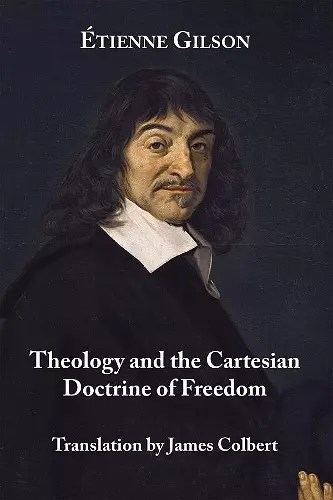Theology and the Cartesian Doctrine of Freedom
Etienne Gilson author James G Colbert author
Format:Hardback
Publisher:St Augustine's Press
Published:8th Apr '19
Currently unavailable, and unfortunately no date known when it will be back

Étienne Gilson’s doctoral thesis explores the medieval influences on Descartes, highlighting his education at La Flèche, his philosophical debates on freedom, and his complex relationship with Jesuit thought.
Theology and the Cartesian Doctrine of Freedom, now translated into English for the first time, represents Étienne Gilson's doctoral thesis and is part of his broader effort to highlight the medieval influences on René Descartes. This work emerges at a time when medieval philosophy was often overlooked. Gilson explores Descartes's education at La Flèche, a Jesuit institution where he received a comprehensive philosophical training. The exact timeline of Descartes's stay and the identity of his philosophy instructor, François Véron, are subjects of debate, but Gilson suggests that Véron’s strong anti-Calvinist stance may have shaped Descartes’s critical view of Scholastic philosophy.
Gilson presents Descartes as a thinker whose primary intellectual pursuit was physics, intricately linked to his philosophical inquiries. He navigated the complex theological landscape of his time, striving to establish a metaphysical framework for his theories of nature while maintaining a position of humility regarding theological matters. Descartes is portrayed as a devoted Catholic, engaging with controversial ideas, such as his belief that God created eternal truths, which raises questions about their necessity.
In the context of the seventeenth-century debate between Thomists and Molinists on human freedom, Gilson illustrates Descartes's intellectual journey, influenced by Cardinal Pierre de Bérulle and his disciple, Guillaume Gibieuf. Despite his efforts to align his ideas with Jesuit teachings, Descartes faced challenges in having his Principles of Philosophy adopted as the standard text in Jesuit schools. This book, while not Gilson's final exploration of Descartes's thought, showcases his engaging narrative style and deep understanding of the intellectual currents of the time.
ISBN: 9781587318580
Dimensions: 242mm x 153mm x 31mm
Weight: 646g
336 pages